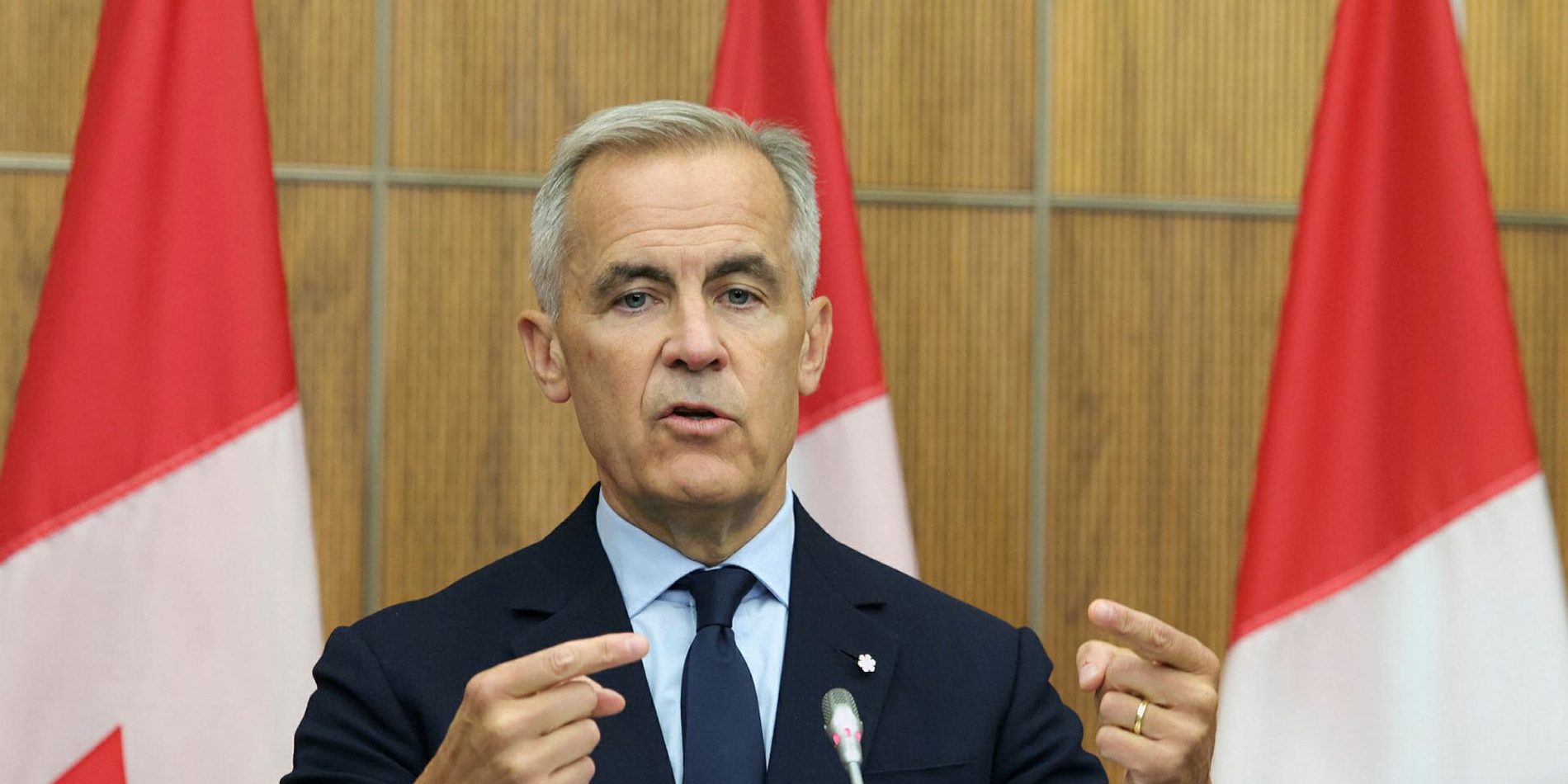Pea and canola sector stress urgent action needed to resolve China trade dispute as harvest approaches

With this fall’s harvest season soon to appear, representatives of Canada’s canola and pulse crop sectors are telling Ottawa that a deal is urgently needed with China, with billions of dollars in domestic crops on the line amid the current trade war.
“Time is of the essence, and we can’t stress that enough,” said Greg Cherewyk, president of Pulse Canada. “We need to see something happen in weeks, not months. That’s how critical this is for us.”
China escalated the trade war with Canada by imposing a 75.8-per-cent duty on all Canadian canola seed shipments on Aug. 14. This measure adds to existing Chinese tariffs against Canada, which include 100-per-cent levies on canola oil, canola meal, and peas, as well as 25-per-cent levies on certain pork, fish, and seafood products implemented on March 20, 2025.
Cherewyk told The Hill Times that his organization’s advocacy priority regarding the trade dispute with China is to emphasize the time sensitivity, adding that Canada’s big shipping season for peas typically begins at the end of August or early September.
China is historically one of Canada’s largest markets for peas, according to Cherewyk. Yellow pea exports worth more than $306-million and weighing approximately 500,000 tonnes were exported from Canada to China in 2024, according to Pulse Canada.
Cherewyk said he understands that resolving trade disputes can take time, but pointed out that when a market is lost even for a short period of time, customers will turn to other sources for what they need.

“There’s pulse production, and in particular pea production, increasing in other countries as well, and Russia has become a major supplier of peas to the world. In particular, Russia is starting to supply peas to China,” said Cherewyk. “Not only were we slapped with the 100-per-cent duty, but we faced intense competition out of the Black Sea region, and specifically out of Russia. It’s a bit of a double whammy for us at that time.”
China’s tariffs were imposed as a response to a 100-per-cent tariff by Canada on Chinese electric cars, and a 25-per-cent levy on steel and aluminum, imposed last year.
In response to the additional anti-dumping duty on imports of Canadian canola seed, International Trade Minister Maninder Sidhu (Brampton East, Ont.), and Agriculture Minister Heath MacDonald (Malpeque, P.E.I.) issued a joint statement on Aug. 12, saying Canada is “deeply disappointed.”
“We are steadfast in our commitment to defend and diversify Canadian trade and we will stand shoulder-to-shoulder in our support for Canada’s hard-working canola producers, workers and exporters,” reads the joint statement. “As the prime minister highlighted last week, Canada’s new government is developing a comprehensive industrial strategy that will help our businesses retool and reinvest to protect Canadian jobs, to build Canadian competitiveness, to meet growing demand in Canada and to develop new opportunities with international trading partners.”
To help address the dispute, Saskatchewan Premier Scott Moe announced on Aug. 22 his plans to lead a six-day trade mission to China, starting Sept. 6. He extended an invitation to participate to Prime Minister Mark Carney (Nepean, Ont.), and any other federal ministers. On Aug. 27, Moe said he didn’t know if any other federal officials would be joining him, as reported by SaskToday.
Rob Stewart, deputy minister of international trade at Global Affairs Canada, and China’s vice-minister of commerce Li Chenggang co-chaired a meeting of the China-Canada Joint Economic and Trade Commission in Ottawa on Aug. 27. The meeting focused on improving and developing bilateral trade and economic relations between the two countries.
Cherewyk said that Canada is starting to acknowledge that China is “too big and too important to ignore.”
“Not all things are on the table right now, but we have a very important economic partnership, and there are opportunities that we need to pursue there. Through this joint economic trade commission process, we can start to pursue those opportunities so that’s important,” he said. “We’re not going to change China, and China’s not going to converge with the West, so we need a new framework for operating and dealing with them going forward. And I feel like that’s been recognized and acknowledged, and that is going to be part of this whole joint economic trade commission process.”
Troy Sherman, senior director of government and industry relations for the Canola Council of Canada (CCC), told The Hill Times that the anti-dumping duties announced by China in August are having an immediate impact on the canola industry, and that the market in China “is now effectively closed to us.”

“We are very engaged with federal and provincial officials to talk about the impact across the Canadian fuel value chain, and obviously the impact on farmers and exporters who rely on China as an important market for Canadian canola,” said Sherman.
The timing of the most recently announced duties on Canada’s canola products were “timed for impact,” he said.
“We are getting ready for harvest of the 2025 crop. Farmers are looking for markets where their product can go. We are looking at a pretty good harvest this season, and so we need to make sure that we have markets for this product,” he said. “This market closure is obviously extremely disruptive for farmers and for exporters, and so there is urgency in our engagement with the federal government. There is urgency to act and support the industry during this very challenging time.”
China is typically Canada’s second-largest market for canola. It imported approximately $4-billion of Canadian canola seed, and another $920.9-million of canola meal, and $21-million of canola oil in 2024, according to the CCC.
Sherman said that engagement with China will be “absolutely essential” as Canada looks to remove anti-dumping duties and discriminatory tariffs.
“We are clear that we need to have support from the federal government for farmers and for the rest of the value chain, and that’s going to be a combination of policy supports and regulatory action and financial support as well, similar to what was done with steel, aluminum and softwood lumber,” said Sherman. “We are looking to have support in terms of financial support, support from a policy perspective, support from a regulatory perspective, but also support from a diversification perspective, as well.”
When it comes to canola, Canada’s largest potential “diversification play” would be development of a domestic biofuels market, according to Sherman.
In July, the CCC released a new strategic framework intended to support the canola sector in navigating challenges, including the “increased complexity and volatility from trade and market uncertainty.”
“Work to implement the framework is already underway to focus the CCC’s work on advancing market access, science-based innovation, a future-focused agronomy function, and strategic market growth that includes canola’s role in the global biofuels market,” reads the framework.
Jeff Mahon, director of StrategyCorp’s international business and geopolitical advisory, said in an Aug. 26 emailed statement to The Hill Times that the first step in resolving the trade dispute between the two countries is to make “normative changes to the way we deal with China that involve shifting the focal point away from who has the ‘correct’ economic model.”

“I see what’s going on right now as kind of a microcosm of a bigger issue. China has a very different system than Canada or other liberal market democracies. [China] governs its economy differently than ours, and because of that, there’s certain types of frictions and we’ve found ourselves in a situation where Canada has taken certain steps to try to protect jobs and investment in some key industrial sectors, and China has retaliated by hitting agricultural commodities,” he said in a separate interview also on Aug. 26.
“I think that what we need to do is recognize the legitimacy of its system, but then point out that because it has a different system, it’s going to create frictions with our system. So, we need to be able to find ways so that we can manage those frictions without retaliating, and particularly hitting sectors that aren’t necessarily so strategic and are undermining employment and jobs,” he continued.
Mahon said that Carney is walking a tightrope when it comes to negotiating with China.
“I think Canada needs to find a way to shift the focal point towards investment in jobs, and use that to determine how we’re going to define our economic relationship,” he said. “I think if we shift the focus to the economic development as it comes through trade or through investment in jobs, that could go a long ways in bringing about a normative change that, I think, will make it a lot easier for the two countries to engage in diplomacy.”
jcnockaert@hilltimes.com
The Hill Times






 LICENSING
LICENSING PODCAST
PODCAST ALERTS
ALERTS













